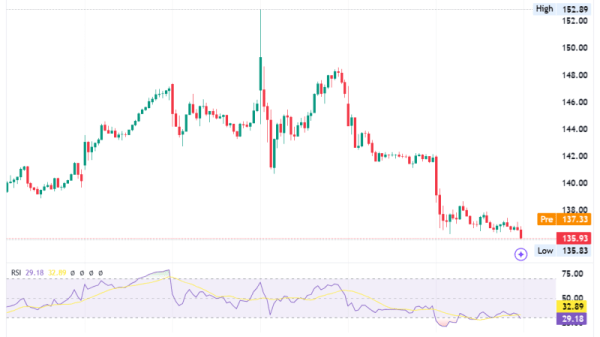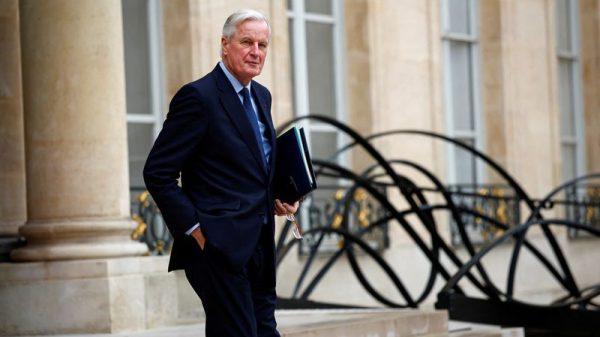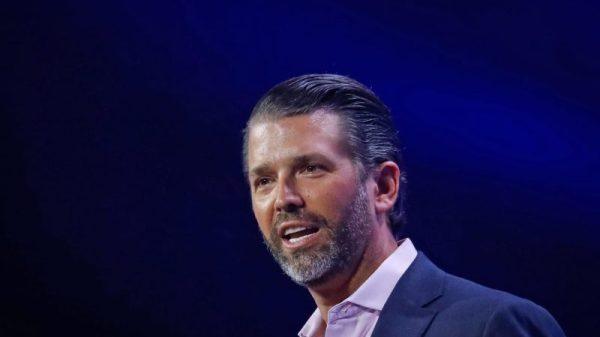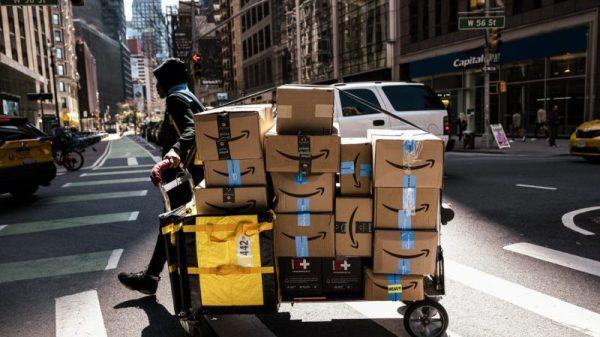By Darya Korsunskaya, Gleb Stolyarov and Alexander Marrow
MOSCOW (Reuters) – “Bus number seven was not running this morning,” Olga Slatina wrote on social media from the Sverdlovsk region in Russia’s Ural Mountains. “The dispatcher said it wouldn’t be there as there was no one to work.”
Slatina’s bus driver in the city of Kamensk-Uralsky may have simply called in sick on that day in late October. But a growing labour shortage is affecting all areas of life since Moscow sent troops into Ukraine in February 2022, companies, workers, recruitment agencies and officials say.
Heavy recruitment by the armed forces and defence industries has drawn workers away from civilian enterprises, as has emigration, pushing unemployment to a record low of 2.3%, data from the Rosstat statistics service showed on Wednesday.
Huge increases in defence spending helped Russia defy early predictions at home and in the West of a catastrophic economic collapse in 2022, with only a small contraction that year.
The economy rebounded in 2023, but labour shortages, interest rates at 21% and high inflation show some of the cracks.
President Vladimir Putin has flagged the labour shortage as a major economic problem and has set boosting Russia’s labour productivity index as one of his key national development goals. Russia is also seeking to encourage women to have more children.
Sverdlovsk, home to many defence sector factories, had 54,912 job vacancies at the start of October, compared to 8,762 unemployed people, according to the region’s labour department.
In the central federal district that is home to around 40 million people in Russia’s west, there are nine vacancies for every unemployed person, the president’s special envoy to the area Igor Shchegolev said on Tuesday.
Russian recruiter Superjob said vacancies across Russia had increased 1.7 times in two years and 2.5 times in industry, while the central bank says 73% of Russian businesses are short of staff.
“The ‘personnel famine’ has turned into a universal phenomenon, capturing practically all parts of the economic system,” Rostislav Kapelyushnikov, deputy director of the labour research centre at Moscow’s Higher School of Economics (HSE), said in a report.
Reuters interviewed over a dozen companies, workers, recruiters and economists about industries as varied as construction, agriculture and IT. The persistent theme was that workers are scarce and prospects for finding more are bleak.
‘THERE ARE NO MEN’
Russia’s low birth rate has for years caused labour shortage headaches in Russia, but the launch of what Moscow calls a “special military operation” resulted in tens of thousands of potential workers joining the army and many others emigrating.
At the same time, the defence sector began hiring fast.
“You had a kind of semi-dead factory in your region, producing shock absorber springs for some defence plants, for tanks, dragging out a miserable existence. And now orders have fallen on it – a lot of springs are needed,” said a person at an industrial company who asked not to be named due to the sensitivity of the issue.
Another person working in a civilian enterprise said many people were finding work assembling drones in the Tatarstan region’s Alabuga special economic zone.
“The salary there is many times higher,” the person said. “One friend who worked there said they can’t even spend the money because they are working constantly.”
Defence orders cannot be left unfulfilled and demand for staff will only slow when orders do, said Andrei Gartung, head of a forging and pressing plant in Chelyabinsk.
No reduction is expected soon. Former president Dmitry Medvedev, now a senior security official, promised employees “a lot of work” during a visit to tank manufacturer UralVagonZavod last week.
Natalia Zubarevich, a professor at Moscow State University, said it was hard for civilian industries to compete.
“There are no restrictions in the defence industries – they have received frenzied financing, so they can raise salaries and poach workers,” she said.
In Sverdlovsk, those who sign up to fight in Ukraine receive a one-off 2.1-million-rouble ($18,560) signing bonus, almost 25 times higher than Russia’s average monthly wage.
A representative of a local recruitment agency said its clients had lost workers to the front.
“They say: I used to have 100 people working, but now there are no men.”
BUILDERS, FARMERS, POLICE
The shortage is acute in manufacturing, logistics and IT, recruiters say, but felt most severely in construction, driving prices higher and hitting deadlines and quality, according to Lydia Kataskina, HR Director at Glavstroy.
Sergei Pakhomov, director of Urals development firm Golos Group, said the company was having to decide whether or not to take on new projects.
“Not because there is no money, but will there be enough people to come to the construction site to work?” he said, predicting the problem would worsen over the next five years.
Around 200,000 people, or 3.3% of all agricultural workers, left the sector in 2023, Agriculture Minister Oksana Lut estimated.
The InterAgroTech association of agricultural producers said the shortage was hitting everything from sowing to harvesting, affecting crop quality and safety.
The shortage is also serious at the interior ministry, which runs the police, Valentina Matvienko, speaker of Russia’s upper house of parliament, said this week. The ministry said the number of unfilled roles had doubled in two years to 173,800, or 18.8% of total staff, by early November.
“What kind of work quality, what kind of law and order can we talk about, including in issues of migration, drug distribution and others?” Matvienko asked.
MIGRANT SHORTAGE
Companies, such as leading retailer X5, are keen to digitise, but as the central bank noted, Western sanctions make it difficult to import relevant equipment from overseas.
Economy Minister Maxim Reshetnikov last week called on regions to recruit young people, pensioners and people with disabilities, as well as lift restrictions on overtime work.
Restrictions on migrant workers remain, however, even though business lobby RSPP said two thirds of companies were struggling to attract the foreign workers they say they need.
Andrey Kostin, CEO of VTB Bank, said this week that without migrants the Russian economy will not breathe.
“It’s easy to kick them out, but someone is needed to work.”
Economists and recruiters expect Russia’s labour woes to intensify, a factor that may contribute to slowing growth.
Russia’s economy ministry expects GDP growth to slow from an estimated 3.9% this year to 2.5% next year.
The shortage of doctors may rise to 40-45% from 25.7% now in the next five to seven years, said Mark Denisov, commissioner for human rights in the Krasnoyarsk region.
Russian authorities say the economy needs an extra 2.4 million people in manufacturing, transportation, healthcare, social services, scientific research and IT by 2030.
“We don’t understand yet where we’re going to get them from,” Deputy Prime Minister Dmitry Chernyshenko said in June. “We now all believe that artificial intelligence will save us because what else can?”
($1 = 113.1455 roubles)




































